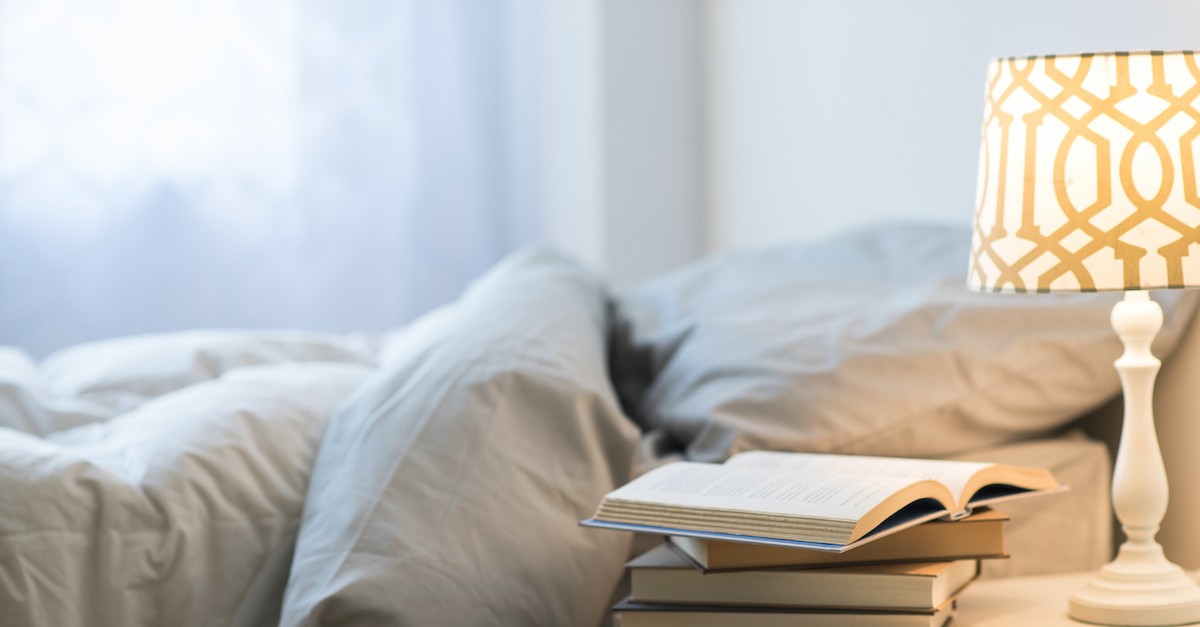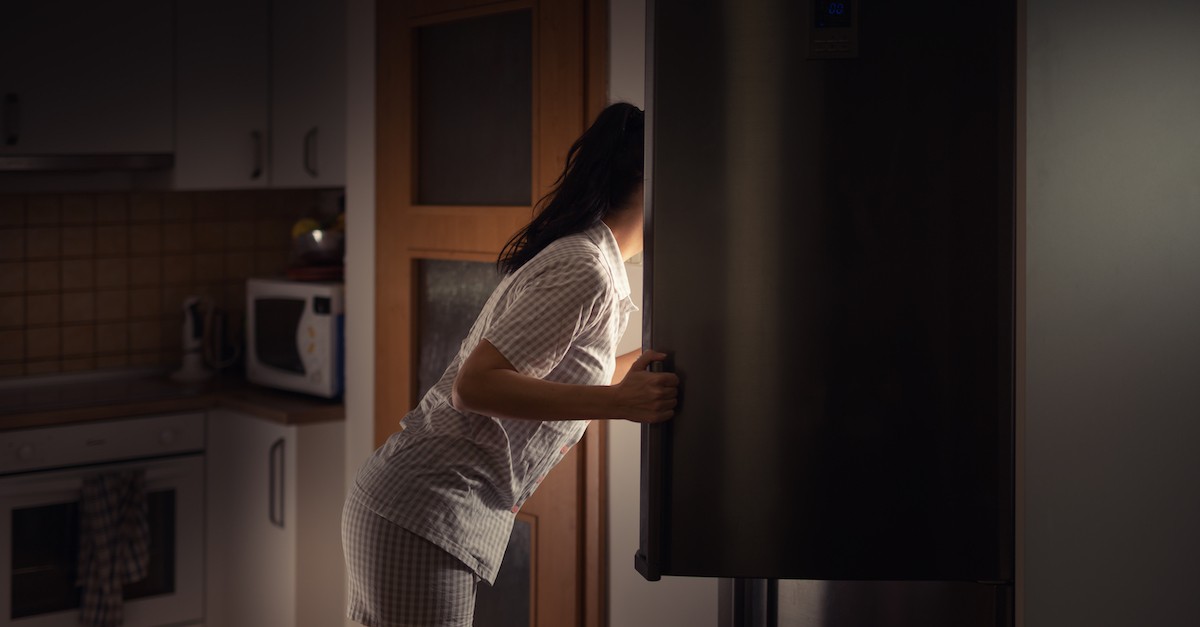While a fortunate few can sleep anytime and anywhere, most people prefer or even require an environment conducive to rest. Your environment plays a huge role in sleep, so be sure to follow your routine and sleep in your bed every night. Whenever possible, don’t nap on the couch or bring work into the bedroom. Train your body and mind to associate your bedroom with sleep. In our bedrooms, we can consider all five senses when preparing the environment for sleep.
Vision
Probably the most important vision-related sleep routine involves the amount of light in our bedroom. God designed our bodies for daily rest. During periods of darkness, they naturally release melatonin, a hormone that causes sleepiness. God ordered the earth with cycles that produce darkness for part of each day so we can rest. Of course, humans have created artificial energy for many years, so we must be intentional about using lighting wisely.
We should have the ability to turn off all lights during sleep, including nightlights and lighting from electronics. If you’re particularly sensitive, you might consider investing in room-darkening shades for your windows so early morning light can’t pry open your eyes prematurely. If you currently have bright LED or fluorescent bulbs in your bedroom, you might also consider switching to softer or adjustable lighting. The lower lights help your body adjust toward sleep as you progress through your bedtime routine.
Touch
Temperature control impacts sleep, but there’s no one-size-fits-all solution. The key is finding and maintaining a sleep temperature that works for you. Many prefer a cooler thermostat for sleep time, but others drift off more quickly in a cozy, warm nest. The fabric of sheets, blankets, and pajamas can also affect sleep. Your preferences may depend on the season of the year. For example, I prefer crisp, cool cotton in the summer and soft microfleece in the winter.
We often need to compromise with our spouses. Fortunately, we have many options to make everyone comfortable. Some beds come with adjustable controls for mattress temperature and incline for each side. If you don’t have that type of bed, you can purchase mattress pads with variable temperature controls.
Hearing
Some degree of quiet enhances sleep, but most can learn to tune out common or repetitive noises. If insignificant sounds easily wake you, consider adding white noise to your sleep environment. A sound machine offers a variety of choices, or you could run a small fan to cover noises that wake you. Some people prefer soft, peaceful music. Also, as part of your bedtime routine, switch off any appliances that jingle or beep during the night.
All parents know children are a source of sleep deprivation. Of course, we often sacrifice our sleep to respond to their needs. But if we can settle them in their rooms before beginning our own bedtime routine, we will sleep better more often.
Smell
We don’t usually think of smells as disruptive to sleep, but certain scents such as lavender and chamomile promote more restful sleep. If you are allergic to scents, be sure to eliminate them from the environment.
Taste
Most recommend not eating just prior to going to bed because a full stomach can feel uncomfortable. If you’re one who needs a bite at bedtime, stick with a light snack or a warm drink such as milk or herbal, noncaffeinated tea.
Photo credit: ©GettyImages/Tetra Images







